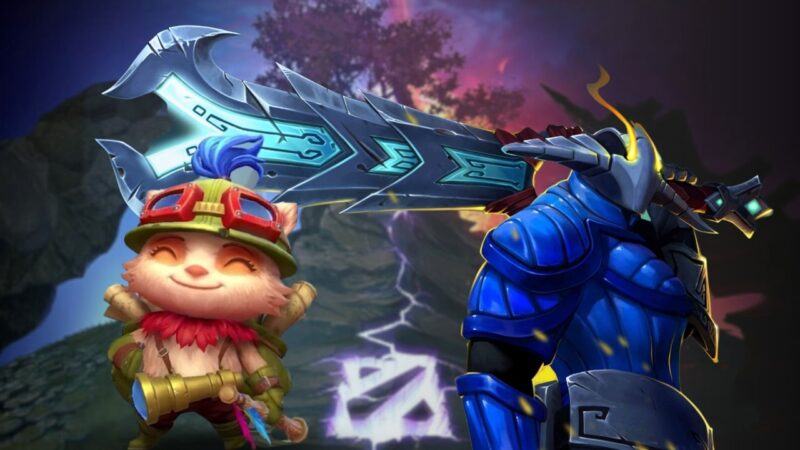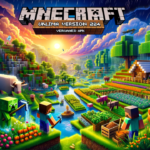There are tons of words in gaming, which get used to describe specific tasks, tactics, and more. We can hear some of them in videos on YouTube or during a stream on Twitch, but one of the most prominent words is “Meta.” However, as a word can have multiple meanings, what is meta in gaming?
In gaming, meta is an acronym for the most effective tactic available in a game version. When players refer to a meta, they refer to the most effective way to achieve the goal of the game. A current meta can change because of a new version of the game or balancing patches.
The word meta can also refer to metagaming, which describes any approach that operates outside of the game’s set rules, using external information to influence the game and its outcome.
How Does Meta Affect Gaming?
In almost every competitive game where teams can play as a team composition, there is a meta. In the case of Overwatch, the meta builds around strong heroes that are viable enough to deal a lot of damage, survive critical situations, and counter as many other heroes as possible.
Playing the meta can be a lot of fun against uncoordinated teams; however, a meta does not allow lots of variation, as it could weaken the entire team. So, what are the pros and cons of meta in gaming?
- Increasing the chance of victory by playing specific characters
- Developers can find characters that are too powerful or too weak quickly
- Less skilled players can find a viable basis of play quicker
- Players that don’t follow the meta often get criticized very hard
- If a meta lasts for too long, players can get bored with the game
- Matches lose variation (feel too similar)
- Players that are not skilled with current meta characters have to learn them first
As you can see, a meta comes hand-in-hand with pros and cons. Most of the cons can even be turned into pros if the developer invests enough work to change up the meta every few months.
If you have played Overwatch for at least two to three seasons, you will know what regular meta chances could have done. One of Overwatch’s biggest downsides is the absurdly long metas’, which sometimes lasted up to 4 months.
If Blizzard had balanced their heroes more frequently, the gameplay would get more variety, and players would not get bored as quickly.
Playing the meta is especially important in competitive modes and tournaments. In most matches of a tournament, pro players decide to play the meta to increase the chance of winning the match. Sometimes we can also see non-meta picks, but they are quite rare.
How does Meta change?
Top tier DPS support of the current meta: because sometimes you just have to carry the game yourself.https://t.co/r94e2qkH0U pic.twitter.com/pSA7IagH5f
— DOTABUFF (@DOTABUFF) May 16, 2023
If you have played a competitive game like Overwatch, Dota, or League of Legends and you don’t like the current meta, it’s a great feeling when a new meta comes up that you like. But, how does a meta even change in a game?
A meta usually changes whenever one or multiple characters get buffed, or current meta characters get nerfed. Changes in a map design can also cause a meta to change, which releases in balancing patches or larger game updates.
Another way how a meta can change is that players discover better team combinations or strategies, which work better than the current meta. Especially pro players try to find new and better strategies to beat the current meta, as it could result in winning a tournament much easier.
What’s an example of Meta?
Let’s take Overwatch’s competitive season 2 for this example. In season two of Overwatch ranked, a new hero, Ana, got introduced, who can boost the hero she uses her ultimate (special move) on.
Her Nano Boost enhances a hero’s DPS (Damage-Per-Second), adds resistance, and increased the movement speed until the ultimate runs out. After a short time, players found out that Ana’s Nano Boost combines very well with Reaper’s ultimate “Death Blossom,” which deals a lot of damage in a certain area.
Reaper’s ultimate was quite strong back then, but he was very slow during the ultimate, and the damage was still too low to eliminate heroes with more HP. But by using a Nano Boost on him, all the disadvantages got erased.
Within a few seconds, Reaper can kill literally every enemy player that is too close, just by pressing the Q button. Funny enough, this meta was called the “Bayblade Meta.” Please take a look at the video below to see what I mean.
What are metagaming and power gaming?
The definition of Meta varies between gaming genres and games. In the RPG genre, meta mostly refers to metagaming or power gaming but has less to do with the most effective tactic available to win a game. So, what are metagaming and power gaming?
Metagaming is a term used in role-playing games, which describes the players’ usage of real-life knowledge, which the in-game character does not have yet. Thus, the player can determine his character’s actions to influence the outcome of an event.
Metagaming is considered cheating in a competitive gaming context and is generally poorly received as it subverts the emphasis of accurate character depiction based on in-game experiences and a back-story that defines role-playing games.
Power gaming is a certain style of interacting with games, intending to reach a goal as soon as possible. In role-playing games, players refer to other players, which ignores set rules they have agreed on.
Chances are high that the other players consider this playstyle as disruptive, un-fun, or unsociable.
Frequently Asked Questions (FAQs)
1. Are there games where the meta doesn’t matter as much?
Yes, indeed! While meta can significantly impact competitive multiplayer games, in casual or narrative-driven games, the concept of meta might not hold as much weight. For these games, it’s more about the storyline, character development, and overall enjoyment rather than competitive strategy.
2. How do player communities contribute to the development of a game’s meta?
Great question! Player communities, particularly those involved in discussions on online forums or social media, often play a substantial role in shaping a game’s meta. By sharing their experiences and tactics, players can collectively identify optimal strategies and character combinations, contributing to the meta.
3. Can you expand on the “meta” concept in the context of card games like Hearthstone or Magic: The Gathering?
Absolutely! In these strategic card games, the meta usually refers to the current environment of popular and successful decks. Players will adjust their deck strategies according to what is most effective against commonly used decks—anticipating and countering the meta can lead to significant advantages in gameplay.
4. Is it necessary to always follow the meta in competitive games?
Not necessarily! While the meta represents the most effective strategies at a given time, it doesn’t mean that they are unbeatable. Non-meta strategies can often surprise opponents who aren’t prepared for them. Plus, the most important thing is to enjoy the game – if you have fun playing non-meta characters or strategies, go for it!







